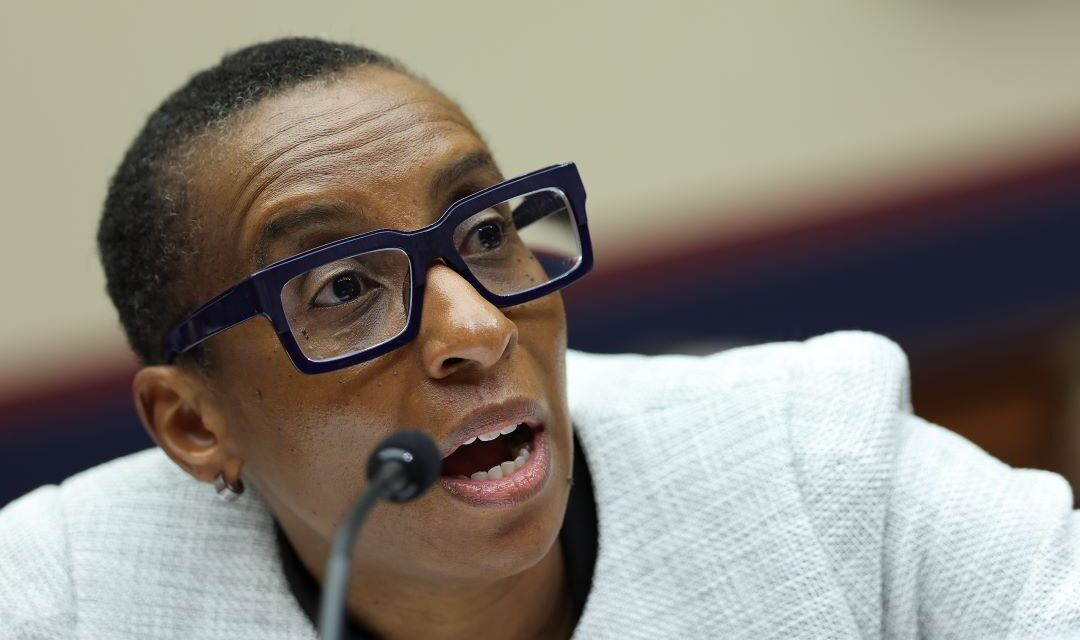Claudine Gay resigned weeks after an embarrassing congressional hearing in which she refused to make it clear that calling for the genocide of the Jews violated the university's code of conduct.
Gay is the second high-profile university president to resign in the past month following congressional testimony. Liz Magill, who resigned as president of the University of Pennsylvania last month after her responses to a congressional hearing on campus anti-Semitism sparked similar outrage.
Gay, Harvard's first president of color, announced his departure in a letter to the Harvard community just a few months into his tenure. According to The Crimson, Harvard's student newspaper, Gay was Harvard's president for six months and two days, the shortest tenure at Harvard on record.
Following the congressional hearing, Gay's academic career came under scrutiny from conservative activists, who uncovered several instances of alleged plagiarism in his 1997 doctoral dissertation. Harvard's board of trustees initially stood behind Gay, saying a review of his academic work found "a few instances of inappropriate citations" but found no evidence of research misconduct.
Days later, the Harvard Corporation disclosed that it had found two more examples of "duplicated language without proper reference." The panel said Gay would update his dissertation and request corrections.
The Harvard Corporation said the resignation came with "great sadness" and thanked Gay for his "deep and unwavering commitment to Harvard and academic excellence."
Following Gay's departure, Harvard's Alan M. Garber will take over as president until Harvard finds a successor
- says the announcement of the board of directors. Garber, economist and physician.
Gay's resignation is being celebrated by conservatives who thrust his alleged plagiarism into the national spotlight. Christopher Rufo, an activist who helped rally the GOP against critical race theory and other cultural issues, said he was "glad it's gone."
"Instead of taking responsibility for the relativization of anti-Semitism, serial plagiarism, intimidation of the free press and damage to the establishment, he prefers to call his critics racist"
Rufo wrote on X. Rufo added that "this is poison to the ideology of diversity, equality and inclusion."
In his letter, Gay wrote that it is "disturbing that his commitment to confronting hatred and maintaining scientific rigor is called into question - two core values that fundamentally define his personality - and "frightening that I have been subjected to personal attacks and threats that it feeds racial hatred," he noted.
According to Gay, who remains on the university's faculty
"it has become clear that it is in Harvard's best interest that I resign so that our community can weather this extremely challenging moment."
Gay and the presidents of MIT and the University of Pennsylvania came under fire last month for their legalistic responses to a question from New York Rep. Elise Stefanik, who asked whether
does his "call for the genocide of the Jews" violate the code of conduct of the institutions they lead.
The three presidents were summoned before the Republican-led House Education and Workforce Committee to answer allegations that universities are failing to protect Jewish students amid rising anti-Semitism around the world and the fallout from Israel's war on Gaza, which has been exacerbated by rising Palestinian casualties. deserves criticism.
Gay said it all depends on the context, adding that when "speech translates into behavior, it violates our policies." The response was quickly echoed by Republican and some Democratic lawmakers, as well as the White House.
Gay later apologized, telling the The Crimson that he got into a heated exchange during a House committee hearing and did not properly condemn threats of violence against Jewish students.
Featured Image: Kevin Dietsch/Getty Images













